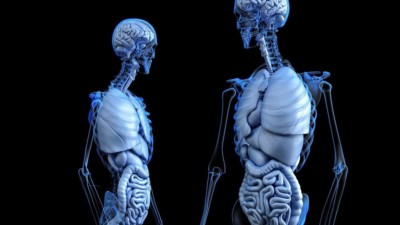 In Chinese Medicine the Intestines of the human are called “ Our second brain” for the last 4 thousand years. Now, the same term is used by western scientists. You’ve got brain cells in your butt. They make your colon smart.A team of scientists in Australia has just released a study with new findings about the bundle of neurons that live in the colon. Those neurons are a part of the body’s enteric nervous system, commonly referred to as the body’s “second brain.” It’s separate from the central nervous system made up of the brain and spinal cord.Basically, these butt neurons fire to contract the muscles surrounding parts of the colon, which then force waste through the last leg of the digestive relay race that usually takes place in the bathroom. But that much was already known among butt brain scientists.What lead author Nick J Spencer, a neurophysiology professor at Flinders University, and his team found by using high resolution neuronal imaging on mice was that the firing of these neurons down below happens in a rhythmic pattern.So whether or not you can effectively shake it on the dance floor, this particular rhythm lives somewhere deep down in the long tube of everyone’s gut. “This represents a major pattern of neuronal activity in the mammalian peripheral nervous system that has not previously been identified,” the authors write.It makes the mundane act of sitting on the toilet seem like such a wonder, doesn’t it?”One of the great mysteries of the gastrointestinal tract is how such a large populations of enteric neurons (that lie within the gut wall) actually fire action potentials to generate contractions of the smooth muscle cells, enabling propulsion of colonic content,” Spencer told Science Alert.But what’s even more, the team also thinks that this “second brain” may have really been our first brain, as far as evolution is concerned.”The newly identified neuronal firing pattern may represent an early feature preserved through the evolution of nervous systems,” according to a news release. “It has also been called the ‘first brain’ based on evidence suggesting that the ENS evolved before the CNS.” Emeran Mayer, professor of physiology, psychiatry and behavioral sciences at the David Geffen School of Medicine at UCLA, echoed those sentiments in a 2010 article in Scientific American.”The system is way too complicated to have evolved only to make sure things move out of your colon,” he told the magazine. “A big part of our emotions are probably influenced by the nerves in our gut.
In Chinese Medicine the Intestines of the human are called “ Our second brain” for the last 4 thousand years. Now, the same term is used by western scientists. You’ve got brain cells in your butt. They make your colon smart.A team of scientists in Australia has just released a study with new findings about the bundle of neurons that live in the colon. Those neurons are a part of the body’s enteric nervous system, commonly referred to as the body’s “second brain.” It’s separate from the central nervous system made up of the brain and spinal cord.Basically, these butt neurons fire to contract the muscles surrounding parts of the colon, which then force waste through the last leg of the digestive relay race that usually takes place in the bathroom. But that much was already known among butt brain scientists.What lead author Nick J Spencer, a neurophysiology professor at Flinders University, and his team found by using high resolution neuronal imaging on mice was that the firing of these neurons down below happens in a rhythmic pattern.So whether or not you can effectively shake it on the dance floor, this particular rhythm lives somewhere deep down in the long tube of everyone’s gut. “This represents a major pattern of neuronal activity in the mammalian peripheral nervous system that has not previously been identified,” the authors write.It makes the mundane act of sitting on the toilet seem like such a wonder, doesn’t it?”One of the great mysteries of the gastrointestinal tract is how such a large populations of enteric neurons (that lie within the gut wall) actually fire action potentials to generate contractions of the smooth muscle cells, enabling propulsion of colonic content,” Spencer told Science Alert.But what’s even more, the team also thinks that this “second brain” may have really been our first brain, as far as evolution is concerned.”The newly identified neuronal firing pattern may represent an early feature preserved through the evolution of nervous systems,” according to a news release. “It has also been called the ‘first brain’ based on evidence suggesting that the ENS evolved before the CNS.” Emeran Mayer, professor of physiology, psychiatry and behavioral sciences at the David Geffen School of Medicine at UCLA, echoed those sentiments in a 2010 article in Scientific American.”The system is way too complicated to have evolved only to make sure things move out of your colon,” he told the magazine. “A big part of our emotions are probably influenced by the nerves in our gut.
